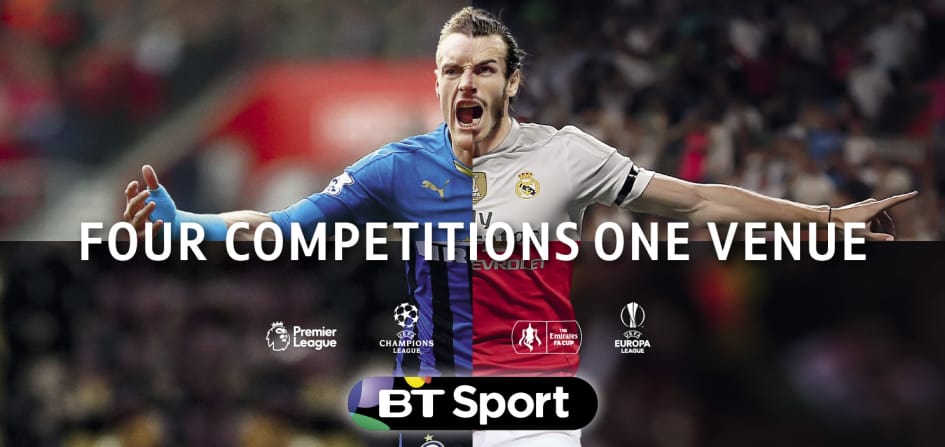BT playing long game with Discovery sports deal

‘Just when I thought I was out, they pull me back in.’ The words of Michael Corleone or BT CEO Phillip Jansen?
Earlier this week, it looked all-but-certain that BT was set to exit the world of sports broadcasting after just under a decade in an US$800 million deal with UK-based streaming company DAZN. Even earlier this week when it was reported that BT had sought approval from the English Premier League to authorise a deal, the entire industry was expecting an imminent announcement that DAZN would be making a splash to enter the UK market in a real way.
However, few people were expecting that subsequent announcement not to be a deal with DAZN but with Discovery. And instead of exiting the sports market – a move which was touted as a means of funding the operator’s ongoing fibre network build out – BT is seemingly doubling down by creating a 50/50 joint venture with Discovery.
Talks are expected to be brief and wrap up in early Q1, with the new company to be operational later in 2022 subject to the usual regulatory sign-offs.
DAZN chairman Kevin Mayer would subsequently come out and explain that a deal for BT Sport had “become uneconomical” but this change of tact for BT shows that the operator is not finished making money from sports – yet.
A genuine sports competitor
To say that the combined resources of BT Sport and Eurosport creates a solid portfolio of rights is something of an understatement.
Announcing the exclusive talks (with a deal yet to be agreed, but more than likely to happen), Discovery said that the JV will have rights to events including: the Olympic Games, Premier League, UEFA Champions League, UEFA Europa League, cycling Grand Tours, tennis Grand Slams, the winter sport World Cup season and Premiership Rugby.
This is without mentioning the likes of UFC, WWE, Serie A, Ligue 1, Euroleague and others.
 It may be damning to argue that BT Sport and Eurosport have historically been also-rans in the UK’s pay TV sports market, but the pair have largely played second fiddle to the established force of Sky Sports despite BT landing blows such as acquiring exclusive UEFA Champions League rights.
It may be damning to argue that BT Sport and Eurosport have historically been also-rans in the UK’s pay TV sports market, but the pair have largely played second fiddle to the established force of Sky Sports despite BT landing blows such as acquiring exclusive UEFA Champions League rights.
From Discovery’s perspective, while it made a splash to acquire the pan-European rights for the summer and winter olympics, it has steered clear of entering into the fray for the UK’s major domestic rights and instead has built up an eclectic portfolio of rights to make it an alternative to the big two in UK sports broadcasting.
The combined BT Sport and Eurosport JV will look to shake up that structure, potentially providing Sky with a serious challenger as the top dog in the UK’s sports broadcasting market.
Tim Westcott, senior research manager at Omdia, however warns against viewing this JV as an aggressive launch against Sky. The analyst says that this approach would be “a departure” for both BT and Discovery, who will also be concerned with maintaining a good relationship with Sky in order to ensure that their channels continue to be distributed by the operator.
The JV will also look to future proof the pair of broadcasters who would have spent years looking over their shoulders at the mobilising efforts of big-money streamers Amazon and DAZN. Amazon holds a small package of Premier League rights, but has considered making a bigger play in the market, while DAZN has long threatened to make a major splash in the UK following the launch of its boxing-only service in 200 markets in late 2020. Apple is also a major US company that has mulled sports rights in international markets, Westcott notes.
While not explicitly mentioning its competitors, BT Consumer CEO Marc Allera stated that the pair have “a shared ambition for growth”.
Similarly, Discovery Streaming & International president and CEO JB Perette said that the combination would serve to “offer consumers a stronger and simplified combined sport offering in the UK and Ireland, and, more broadly, to advance our strategy of bringing sports and entertainment to more consumers on the platform of their choice.”
Strategic alignments
The strategy of both Discovery and BT lines up in more than just their ambition to build up a major sports broadcaster, with the JV also fulfilling long-term ambitions for both companies.
Much as we have seen in the US with its merger with WarnerMedia, Discovery’s key focus in 2022 is the expansion of its streaming business, and specifically discovery+.
Similar to that deal, it is likely that BT Sport and Eurosport will remain as separate entities, Westcott predicts. The analyst says that there may be crossover between the two, but they are mostly set up as standalone brands, with Discovery in particular “being fond of the Eurosport branding.”
This will likely extend across linear and streaming, Westcott adds. “With discovery+, there’s more of a question of what happens with it and HBO Max,” he says, predicting that the BT Sport app will remain as its own entity. “I don’t see the rationale of BT and Discovery merging their linear channels and their apps,” he surmises.
Westcott goes on to suggest that this latest deal for Discovery could provide the company with an avenue to launch HBO Max into the UK market if and when Warner manages to get its rights back from Sky. (Warner is tied into a content deal with Sky until at least 2025.)
The partnership will also serve to boost the user base of discovery+, with BT confirming that its subscribers will gain access to Discovery’s sport and entertainment content including the streamer.
 That aspect is mutually beneficial to both companies: Discovery will boast to shareholders that its user base in the UK will increase by several millions, while BT gets another value add to make its pay TV and broadband offerings stickier.
That aspect is mutually beneficial to both companies: Discovery will boast to shareholders that its user base in the UK will increase by several millions, while BT gets another value add to make its pay TV and broadband offerings stickier.
Retaining access to sports for its customers was always a key aspect of negotiations for BT, with the operator reportedly demanding this as part of the proposed deal with DAZN. It is unclear whether this was something that DAZN was ready to agree to.
From the BT point of view, a partnership with Discovery will only serve to benefit it in the long run in the event that it decides to pull out from sports. CEO Phillip Jansen has not attempted to hide the fact that BT would step away from the market if the right numbers were presented to him, and the company all but seemed to be on the verge of an exit this week. The team that set up BT Sport has long departed the company, and management is now focused on its fibre network build.
However, the operator has ultimately decided that a JV is the way to go at least for now.
One read of the situation is that BT is looking to maximise the value of its sports business via this venture, before eventually stepping away down the line when it is more profitable
“I think there’s always been the possibility that BT is going to pull out of Sport and concentrate its attention on its network,” Westcott says. “It will still be a possibility in the future; nothing changes.”
It is difficult to make any overly assertive statements on this business. Talks are evidently serious (you wouldn’t announce them if they weren’t) but they still are talks with no concrete deal in place. There still remains a chance that the deal could fall apart, however unlikely that may be.
We await to see whether the completed merger of BT Sport and Eurosport serves as a shrewd exercise in business consolidation, as a major disruptive statement in the UK’s sports market, or as something somewhere in between.



